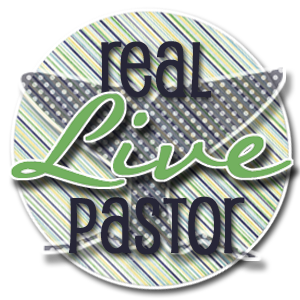Someone sent this to me in an email recently.
Aoccdrnig to rscheearch at Cmabrigde uinervtisy, it deosn't mttaer waht oredr the ltteers in a wrod are, the olny iprmoetnt tihng is taht the frist and lsat ltteres are at the rghit pclae. The rset can be a tatol mses and you can sitll raed it wouthit a porbelm. Tihs is bcuseae we do not raed ervey lteter by it slef but the wrod as a wlohe.
I'm not sure about the origins, and a quick internet search found evidence that this has nothing to do with Cambridge University. What I do know is that I read it through the first time with no problems, so there must be a kernel of truth in there somewhere.
What I did think about though, is how the jumbled up words resemble the mess we often make of our prayer lives. Paul states that we don't really know how to pray. We send up prayers to God but they are jumbled up and nonsensical. But Holy Spirit takes that jumbled up mess and makes it whole, complete, and ready for the Father's ears. (See Romans 8:26-27)
When I hear people say, "I don't know how to pray." or "I don't know what to pray." I give them some simple advise that I'll pass on to you now...Don't worry about it. The most eloquent prayers you've ever heard still receive a rewrite from Holy Spirit. God knows the intent of our hearts and that means more than a well strung set of verbiage. So pray, cry, laugh, mumble, sing, or whisper to God. He knows our hearts and will answer.
Thursday, February 25, 2010
Tuesday, February 23, 2010
Love in Action
Every seminary graduate has them. Those profs who speak louder and with more to tell us than any text book ever could. I had two I absolutely adored. One of these great men was Steve Drake. We had some friends in common, but mostly he was a great mentor.
In my “Foundation for Ministry” class, Steve told us the story of a wife that came to his office for counseling. “I not only want to get rid of him, I want to get even! Before I divorce him, I want to hurt him as badly as he has hurt me.” With the Wisdom of Solomon, Dr. Drake suggested that she go home and treat her husband as if she "truly" loved him. She should go out of her way to be kind and generous; She should spare no effort at pleasing him and enjoying him. “Make him believe that your love is undying and that you can’t live without him. Then tell him you want a divorce. That will really hurt him.” She was thrilled with the plan and went about acting “as if” she loved him. For two months, she showed kindness, support and love. When Dr Drake had not heard from her those two months, he called and asked if she was ready for the divorce. “Divorce?” she exclaimed. “Never! I’ve found out I really do love him.”
Here is the point; her actions had changed her feelings. Motion resulted in emotion. The ability to love is established, sometimes, not so much by fervent promise but by repeated deeds. We can learn a valuable lesson from this story. If we put our words into action and if you will SHOW your love with deeds, it will return to you in abundance. As Paul said, “If I gave all my wealth to the poor, and if I were burned alive for my deeds, if I didn’t have love, it would all be for nothing!”
I am afraid that we have lost sight of that, and we have begun, as a culture and a society, to only offer love conditionally. If you give it to me, I'll give it back. Thank God, He offers us unconditional love. No strings attached. We need to be more like that. I fear greatly for my beloved Southern Baptist Convention, that we have become a Convention of Ephesian believers...those whose love has grown cold. We are right on the money with our doctrine and theology, but just like the church in Ephesus, we have left our first love. Remember, they didn't lose it, they left it! We leave the love of Jesus when we want a Baptism every Sunday, but never evangelize. When we want a church full on Sunday, as long as no visitor sits in our seat. Lots of youth and young married couples, but no contemporary music and certainly no disruptions caused by teens and young children. We want our students to go to Bible Drill, but heaven help the poor youth worker who asks for $25 to buy pizza.
Let us stop with the games of playing AT church, and let us put our love into action. I really, honestly, truly, certainly do believe that if we will, we will find full churches, filled baptisteries, and youth growing strong in their faith.
In my “Foundation for Ministry” class, Steve told us the story of a wife that came to his office for counseling. “I not only want to get rid of him, I want to get even! Before I divorce him, I want to hurt him as badly as he has hurt me.” With the Wisdom of Solomon, Dr. Drake suggested that she go home and treat her husband as if she "truly" loved him. She should go out of her way to be kind and generous; She should spare no effort at pleasing him and enjoying him. “Make him believe that your love is undying and that you can’t live without him. Then tell him you want a divorce. That will really hurt him.” She was thrilled with the plan and went about acting “as if” she loved him. For two months, she showed kindness, support and love. When Dr Drake had not heard from her those two months, he called and asked if she was ready for the divorce. “Divorce?” she exclaimed. “Never! I’ve found out I really do love him.”
Here is the point; her actions had changed her feelings. Motion resulted in emotion. The ability to love is established, sometimes, not so much by fervent promise but by repeated deeds. We can learn a valuable lesson from this story. If we put our words into action and if you will SHOW your love with deeds, it will return to you in abundance. As Paul said, “If I gave all my wealth to the poor, and if I were burned alive for my deeds, if I didn’t have love, it would all be for nothing!”
I am afraid that we have lost sight of that, and we have begun, as a culture and a society, to only offer love conditionally. If you give it to me, I'll give it back. Thank God, He offers us unconditional love. No strings attached. We need to be more like that. I fear greatly for my beloved Southern Baptist Convention, that we have become a Convention of Ephesian believers...those whose love has grown cold. We are right on the money with our doctrine and theology, but just like the church in Ephesus, we have left our first love. Remember, they didn't lose it, they left it! We leave the love of Jesus when we want a Baptism every Sunday, but never evangelize. When we want a church full on Sunday, as long as no visitor sits in our seat. Lots of youth and young married couples, but no contemporary music and certainly no disruptions caused by teens and young children. We want our students to go to Bible Drill, but heaven help the poor youth worker who asks for $25 to buy pizza.
Let us stop with the games of playing AT church, and let us put our love into action. I really, honestly, truly, certainly do believe that if we will, we will find full churches, filled baptisteries, and youth growing strong in their faith.
Monday, February 22, 2010
Light Bulbs and Lamps
One day last week I noticed that the light in the bathroom seemed, well, darker. Upon inspection I realized that the glasses that encase the light bulbs were dusty. Go figure. So I cleaned them by putting them in the dishwasher. Amazing! They looked brand new and the light was crystal clear. Speaking of clear light, GE has developed a new light bulb called Reveal. These are the bulbs we're using in the bathroom. The glass is tinted purple (lavender to be exact) so it gives a “clear light” as apposed to white glass that gives a “yellow light”. Go figure, part deux. Purple glass gives white light, while white glass gives yellow light. Kinda like how a brown cow eating green grass gives white milk? Now I'm no light expert, but that is amazing to think about.
Something else amazing to think about is the way the Bible is compared to a light. I thought about that in relation to David’s great Psalms, especially, “Your word is a lamp to my feet and a light to my path.” Psalm 119:105 (NKJV)
Today, we can light up a room with a flick of a wall switch; in biblical times, however, lamps were required. They burned brightly, but only with proper care. If the wick got to short, or soot was aloud to build up, the flame would become weak. In Psalm 119, David is using a lamp as a metaphor for God’s Word. If we diligently tend to the lamp, it will give a clear light. In-other-words, it will reveal the truth. (See how I did that, with the whole Reveal analogy.)
What David is saying is that the lamp flickers when form replaces function and traditions push aside the commandments of God. Or more aptly put, when we allow our lamp (i.e. The Bible) to get dusty. The light dims when we stay away from God's Word and the fellowship of other believers. The light must remain clear and bright in order to “light our paths”, another way of saying “Show us God’s Will.” If we want God to reveal His will for our lives, we will keep our lights dishwasher fresh and tinted purple. We will keep the light crisp, clear, and a central part of our daily walk.
So take a moment today and dust off your Swords. Spend some time with the Father and ask God to put a little light on your path.
Something else amazing to think about is the way the Bible is compared to a light. I thought about that in relation to David’s great Psalms, especially, “Your word is a lamp to my feet and a light to my path.” Psalm 119:105 (NKJV)
Today, we can light up a room with a flick of a wall switch; in biblical times, however, lamps were required. They burned brightly, but only with proper care. If the wick got to short, or soot was aloud to build up, the flame would become weak. In Psalm 119, David is using a lamp as a metaphor for God’s Word. If we diligently tend to the lamp, it will give a clear light. In-other-words, it will reveal the truth. (See how I did that, with the whole Reveal analogy.)
What David is saying is that the lamp flickers when form replaces function and traditions push aside the commandments of God. Or more aptly put, when we allow our lamp (i.e. The Bible) to get dusty. The light dims when we stay away from God's Word and the fellowship of other believers. The light must remain clear and bright in order to “light our paths”, another way of saying “Show us God’s Will.” If we want God to reveal His will for our lives, we will keep our lights dishwasher fresh and tinted purple. We will keep the light crisp, clear, and a central part of our daily walk.
So take a moment today and dust off your Swords. Spend some time with the Father and ask God to put a little light on your path.
Thursday, February 18, 2010
Subscribe to:
Posts (Atom)











